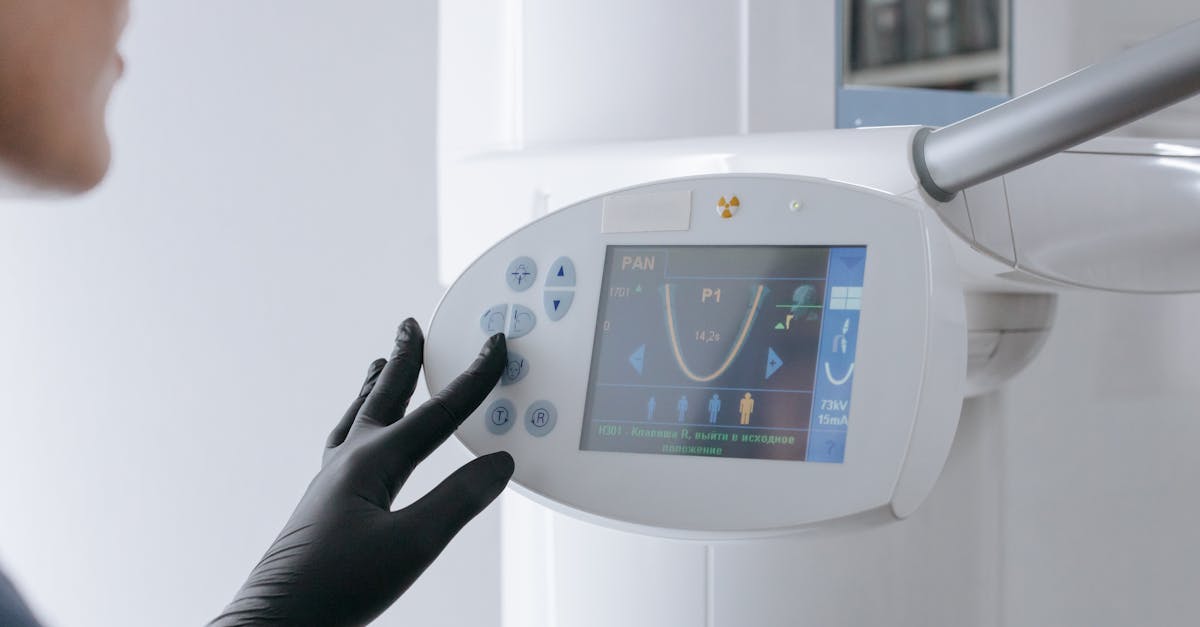Patient Data Security: Encryption, Permissions, and Audit Trail for Clinics
In the digital era of healthcare, patient data security is no longer just a technical requirement but the cornerstone of building trust between a clinic and its patients. Protecting sensitive health information demands a multi-faceted strategy that ensures confidentiality, integrity, and controlled access. A modern clinic management system plays a pivotal role in implementing this strategy, relying on three essential pillars: Encryption, Permissions, and Audit Trails. Through the Tadawi system, these pillars are integrated into a cohesive architecture designed to provide the highest levels of security and compliance.
A deep understanding of how these elements work together enables clinics to protect their most valuable digital assets, avoid the legal and financial consequences of data breaches, and, most importantly, maintain the trust of their patients. In this comprehensive guide, we will explore each pillar in detail, explaining how each component contributes to a secure and reliable environment for managing patient data.
Pillar 1: Encryption as the Primary Defense Line for Patient Data Security
Encryption is the first and most robust line of defense in protecting patient data. Simply put, it is the process of converting readable data into an encrypted code that can only be deciphered with a private key. This means that even if an unauthorized person gains access to the data, they will not be able to read or understand it. The Tadawi system relies on advanced encryption protocols to protect information at every stage.
Protecting Data at Rest and in Transit
Encryption is applied in two main states: data at rest and data in transit. Data at rest is information stored on servers or databases. The Tadawi system uses strong encryption algorithms like AES-256, a global standard adopted even by governments to protect classified information, to ensure all stored Electronic Health Records (EHR), invoices, and medical images are completely unreadable to any unauthorized party. Data in transit is information sent over the internet, for example, between the clinic and the cloud server. Here, protocols like TLS (Transport Layer Security) are used to create a secure tunnel that prevents data interception or tampering during transmission.

Compliance with International Standards
Strong encryption ensures compliance with stringent international regulations and standards such as the Health Insurance Portability and Accountability Act (HIPAA) and the General Data Protection Regulation (GDPR). These regulations impose severe penalties on institutions that fail to protect patient data. By automatically applying encryption, the Tadawi system helps clinics meet these requirements without needing in-depth technical expertise, reducing risk and ensuring peace of mind.
Pillar 2: Permissions for Precise Control Over Data Access
Even with the strongest encryption, controlling who can access data within the clinic is crucial. The permissions mechanism, or Role-Based Access Control (RBAC), ensures that each user in the system only has access to the information they need to perform their job. This principle, known as the "Principle of Least Privilege," significantly reduces the risk of unauthorized access, whether accidental or intentional.
Custom Roles and Permissions
In a clinic environment, access needs vary greatly among staff. For example:
- A receptionist: Needs access to schedule appointments and basic patient contact information but should not be able to view the complete medical history.
- The treating physician: Needs full access to the medical records of their patients, including diagnoses, treatments, and reports.
- The clinic manager: May need access to financial and administrative reports, but not necessarily the detailed medical information of every patient.
The Tadawi system allows for the creation of custom roles with precisely defined permissions, ensuring that every team member has the tools they need without compromising patient privacy. This approach not only enhances security but also improves workflow efficiency.

Advanced Authentication Mechanisms
In addition to defining roles, the Tadawi system relies on strong authentication mechanisms to ensure users are who they claim to be. This includes enforcing complex password policies and supporting Multi-Factor Authentication (MFA), which requires an additional verification step (like a code from a phone app) to log in. This extra layer of security makes it extremely difficult for attackers to access accounts even if they manage to steal a password.
Pillar 3: The Audit Trail for Tracking Every Activity and Ensuring Accountability
The third pillar of data security is the Audit Trail. It is a comprehensive and automatic log of all actions performed within the system. This log records who performed what action and when. It provides complete transparency and the ability to track every interaction with patient data, which is essential for accountability, security investigations, and regulatory compliance.
What Does the Audit Trail Record?
In the Tadawi system, the audit trail is designed to be detailed and comprehensive, recording events such as:
- Logins and Logouts: Who logged into the system, when, and from which device.
- Record Access: Who viewed a specific patient's record.
- Modifications: Any changes made to patient data, including the old and new values.
- Data Creation and Deletion: Who created a new record or deleted one.
- Data Exports: Who exported or printed any information from the system.

The Importance of the Audit Trail
The audit trail acts as a powerful deterrent against internal misuse, as employees know that all their actions are being logged. In the event of a security breach or suspicious activity, the audit trail becomes an invaluable tool for investigators to determine the source and scope of the problem. Furthermore, many health regulations require the maintenance of accurate audit logs as proof of compliance, making this feature essential for any modern clinic.
The Integrated Approach: How Tadawi Combines the Three Pillars
The true strength of patient data security lies not in implementing each pillar separately, but in integrating them into a single, cohesive system. The Tadawi system provides this integrated approach, where encryption, permissions, and audit trails work together to create a multi-layered defense.
This integration is the foundation of any successful digital transformation initiative in the healthcare sector. When data is secure, the clinic can focus on improving its other operations. For example, a secure system allows for better resource management, leading to cost reduction in operations. It also facilitates processes like inventory management for drugs and medical supplies, opens the door to secure electronic supplier integration, and even supports pharmaceutical marketing strategies by providing accurate data on consumption and needs.
| Security Pillar | Description | How Tadawi Implements It |
|---|---|---|
| Encryption | Converting data into an unreadable code to protect it from unauthorized access. | Uses AES-256 encryption for data at rest and TLS protocols for data in transit. |
| Permissions | Controlling user access to data based on their roles and responsibilities. | Provides a Role-Based Access Control (RBAC) system with support for Multi-Factor Authentication. |
| Audit Trail | Logging all activities and actions performed within the system for accountability and transparency. | Maintains a detailed log of all interactions with patient data, including views, edits, and deletions. |
Glossary of Key Terms
Inventory Management
The process of overseeing the ordering, storage, and use of medical materials and supplies within the clinic to ensure their availability when needed.
Supplier Integration
Electronically connecting the clinic's systems with suppliers' systems to facilitate automated ordering, purchasing, and restocking processes.
Digital Transformation
The adoption of digital technology to improve operational processes and healthcare service delivery, thereby increasing efficiency and quality of care.
Pharmaceutical Marketing
Strategies and activities aimed at promoting awareness of drugs and health products and making them available to patients based on their needs.
Cost Reduction
Implementing strategies and tools aimed at lowering the clinic's operational expenses while maintaining or improving the quality of service.
Frequently Asked Questions About Patient Data Security
1. How does the Tadawi system protect data from internal threats, such as curious employees?
The Tadawi system addresses internal threats through a combination of strict permissions and a comprehensive audit trail. Role-based access ensures that employees can only see the data necessary for their jobs. Meanwhile, the audit trail logs every access or modification, creating a digital paper trail that can be reviewed and acting as a strong deterrent against any attempt at unauthorized access.
2. Is my clinic's data safe if a staff member's computer or mobile phone is stolen?
Yes. Since Tadawi is a cloud-based system, sensitive patient data is not stored locally on individual devices. All data is stored securely and encrypted on central servers. Even if a device is stolen, the data cannot be accessed without the correct credentials, which are also protected by measures like Multi-Factor Authentication. Administrators can also remotely revoke access for the stolen device.
3. How important are data backups, and how does the Tadawi system handle them?
Regular backups are essential for business continuity and disaster recovery, whether from a cyberattack or hardware failure. The Tadawi system automates the backup process, creating multiple copies of the clinic's data and storing them in different secure, geographic locations. These backups are encrypted with the same high level of security as live data, ensuring your information can be restored quickly and safely when needed.
In conclusion, Patient Data Security: Encryption, Permissions, and Audit Trail for Clinics represents a comprehensive approach that cannot be compromised. Adopting a system like Tadawi that embodies these principles not only protects the clinic from risks but also enhances its reputation as a trustworthy entity that cares about its patients' privacy and the security of their information.
If you’d like to discover more strategies for boosting sales in your clinic, you can request a free quote for the Tadawi Clinic Management System.
For frequently asked questions, click here

